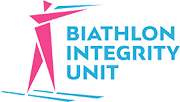Nutrition and recovery
Eating right over the summer will help you to be at your best when next season comes around
Preparation is in full swing, and it’s easy to forget the importance of good nutrition for short- and long-term recovery.
Biathlon is an endurance sport in which you burn high amounts of energy, whether in competition or during summer training. It’s important to eat enough calories and drink enough to stay hydrated.
But remember: what you put into your body directly affects how it will perform. Fuel it properly, and you’ll have the energy to compete at your best when the season comes around.
Food-first nutrition
Some athletes look to nutritional supplements to help them reach their peak performance. But if you don’t need them for medical reasons, why reach for supplements? All you need to fuel your body properly is the right food.
For instance, most athletes try to limit processed food because it contains artificial ingredients and, often, high amounts of sugar. You can get most of the vitamins and minerals you need directly through your food by including lots of fresh products in your diet.
When it comes to post-exercise food, many athletes are fans of the simple PB&J (peanut butter and jelly sandwich), especially with whole-wheat or whole-grain bread (also a good to-go snack). For those athletes, the PB&J is the perfect way to top up their nutrition straight after exercise.
Post-exercise recovery tips
So here are some post-exercise recovery tips that will help you reach peak condition for next season:
· To help recover muscle energy for training sessions less than eight hours apart, eat as soon as possible after exercise, and every 15 to 30 minutes for up to four hours;
· Choose higher-carbohydrate foods, such as bagels, pasta, fruits, yogurts, cereal with low-fat milk, peanut butter, sports drinks, granola bars, French toast, sub sandwiches, baked potatoes with chili, and smoothies made with fruit, fruit juice, yogurt and frozen yogurt;
· Include protein to aid muscle recovery and promote muscle growth;
· If you can’t consume solid foods as soon as possible after exercise, try two to four cups of a sports drink, then consume solid food within four hours of finishing exercise
· And finally, consume 1 – 1.2g of carbohydrates per kilogram of body weight per hour for the first four hours after glycogen-depleting exercise. And be sure to rehydrate as well.
Follow these nutrition tips in your summer training, and you’ll go into the season ready to compete in peak physical condition.


